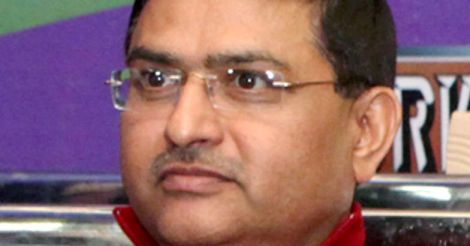Prime minister Narendra Modi has never been a mute, indecisive leader. But oddly enough, his emphatic resolve was nowhere to be seen in some of the top-level appointments made by his government recently.
The latest ad hoc appointment, which has become controversial, is the appointment of a new director for the Central Bureau of Investigation (CBI).
As the director of the premier anti-corruption agency has a fixed term of two years, everyone in the government knew the new director should join in December. Yet, the government did not convene a meeting of the appointment committee, which comprises the prime minister, Chief Justice of India and the leader of the opposition in Lok Sabha, before the superannuation of Anil Kumar Sinha on December 2.
It was for the first time in 10 years that none was named to succeed an incumbent CBI chief. The government then did something even more surprising. The senior-most official in the agency, which is always accused of being the government’s handmaiden, was transferred to the union home ministry even though he was a contender for the director's post.
Following this, a junior officer was made the in-charge director until a full-time boss was appointed by the committee. Since the in-charge director, Rakesh Asthana, belonged to Gujarat cadre of Indian Police Service, there was a speculation that he was a favorite of the prime minister, who was Gujarat chief minister for 12 years.
However, the government claimed the meeting was delayed because it could not get convenient dates of the members, viz., chief justice T.S.Thakur and congress leader in Lok Sabha Mallikarjun Kharge.
But Modi's opponents saw sinister motives in the move and said the prime minister was not willing to sit with the chief justice due to the standoff between the judiciary and the executive over appointment of supreme court and high court judges. Thakur retires in early January. Meanwhile, government ministers argued that the opposition was seeing shadows where none existed.
Similarly, there was a delay in the appointment of a full time director for the enforcement directorate, which investigates complex money laundering cases. The earlier director Rajan Katoch was transferred out in April last year, but the government did not appoint a full time director. Instead, a senior police officer, Karnal Singh, who was working as special director, was made the in-charge director for three months.
After that period, the government continued Singh on a temporary basis till April this year. After a year of day-to-day basis monitoring, the government appointed Singh as the full-time director.
The government sources explained that since the directorate handled the most important cases involving unearthing black money, the prime minister and finance minister wanted to observe Singh's performance at the helm of the agency.
Incidentally, a good number of posts in the agency are vacant as the government has not been able to find suitable officers with experience, expertise and integrity to serve in the agency, which investigates black money cases in India and abroad.
It was a different scenario at the National Investigation Agency (NIA), which probes terrorism cases, including the attacks on army camps in Pathankot, Uri and Nagrota, as well as against recruits to Islamic State and other branded terror organizations. Sharad Kumar was appointed as director for a two-year term in 2013 by the UPA government. But when his term ended in 2015, Kumar was given one year's extension as the government couldn’t find a good replacement.
Modi, home minister Rajnath Singh and national security adviser Ajit Doval were so impressed with Kumar's performance that he was given one more extension.
The supreme court in the Vineet Narayan case of 1995 and subsequent cases had ruled that the court as well as the central vigilance commission should be involved in appointment of directors for the CBI and enforcement directorate.
But according to the BJP, a series of weak coalition governments allowed the supreme court to assume powers of the executive. Intrinsically, the chief justice should be writing judgments and not involved in appointment of government officers.
It’s clear that Modi wants to assert the supremacy of the executive in running investigative agencies. But it is to be seen how the court would react to these developments.

























 Rakesh Asthana, belonged to Gujarat cadre of Indian Police Service and there was a speculation that he was a favorite of the prime minister.
Rakesh Asthana, belonged to Gujarat cadre of Indian Police Service and there was a speculation that he was a favorite of the prime minister.